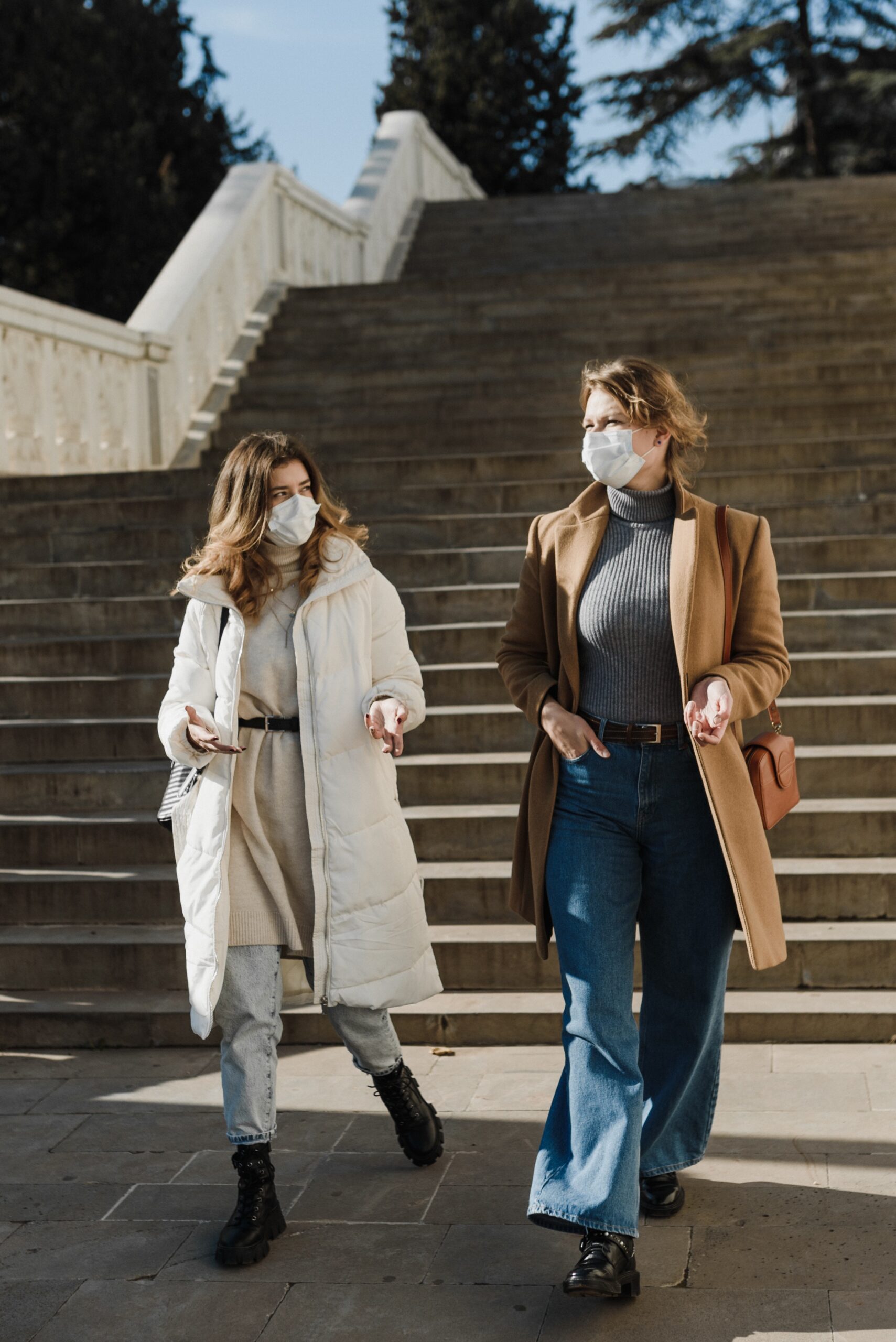Shelter-in-place has influenced many aspects of our lives; our appearance, our demeanor, and our attitude. How will it influence how we engage post-COVID?
Once the “shelter-in-place” restrictions are lifted and we venture out, we will undoubtedly run into people we haven’t seen in a while. Naturally, it’ll be great to see our neighbors, friends, family, and coworkers.
Will our approach and receptiveness be the same? How will we respond to these encounters?
Because we don’t know everyone’s state of mind or experiences during the pandemic, how we engage is especially important. Begin the conversation with uplifting, positive, and even neutral topics.
However, if you are greeted with an all-to-personal question or a blunt remark about your appearance, you can choose to engage or respond in a neutral manner. The latter will allow both parties to walk away peacefully.
APPEARANCES: “Wow, you look different!” Good different or bad different?
Attire: Bumping into someone who always dressed fashionably, and now they’re wearing pj bottoms or sweats, can be a bit surprising.
Demeanor: Bumping into someone who always joked around, and now they seem reserved and lack enthusiasm, can be a bit surprising. “What happened to you!”
Physical: Bumping into someone who has gone gray, gained weight, or grew in a beard can be a bit surprising. “I didn’t even recognize you!”
Neutral responses: “Yes, COVID has changed us in a lot of ways. So, how are you doing?” Or, “It’s been a tough year, but I’m looking forward to the new year. How are things with you?”
GREETINGS: “How about a hug.”
Physical contact: Some people will be ready to resume the customary greetings of shaking hands or hugging.
Neutral responses: 1) Put your hand up, simulating a barrier. 2) Take a small step back. 3) Smile. Adding, “Maybe in a few months…I’m still trying to keep some distance as a precaution. It’s great to see you!”
INVITATIONS TO GATHER: “Come on! It’s outdoor with plenty of space…”
Neutral responses: Avoid lecturing them on the restrictions. Obviously, it’s planned. “Thank you for thinking of me, but I’m not ready to gather yet. Have a great time!” “I’ll take a rain-check.”
A LIFE-CHANGING EXPERIENCE: “You’ve got to read this! It changed my life!”
Shelter-in-place has given us time, loads and loads of time to evaluate and make changes; changes we are eager to share with others. “I found Jesus!” “I joined a vitamin sales group, if you buy-in…” “This guru changed my life! I submitted your email.”
Neutral responses: Assuming you are not interested, you can say, “That’s great. It sounds like it’s working well for you.” Or, “Thanks, but it’s not for me. I wish you well.”
THAT’S PERSONAL: Divulging or asking personal questions can be awkward.
Some people are super comfortable sharing and oversharing, and that’s fine. However, not all people are comfortable hearing about it.
One point I must make, if you share it on social media, it’s no longer personal.
Shelter-in-place has affected us all in different ways. Some people have relapsed into addiction, others depressed, couples on the brink of divorce… “I hear you’re getting divorced.” “Drinking is the only thing getting me through this pandemic.”
Neutral responses: Caution must be taken when addressing or responding to a serious situation. With that said, here are a couple of neutral responses: “Yes, we are getting divorced. So how is your family doing?” Or, “That’s personal.” Drinking; “Shelter-in-place has been very challenging. I hope things change soon.”
FINANCES: Money matters are often off-limits, even among close friends and family.
Supposing it is well-intended, still, comments like, “I bet you’re getting behind on your mortgage now that your wife got laid off.” “How much are you getting from the government?”
Neutral responses: “It’s been a rough year for a lot of people.” “We’re managing.” “Thanks for your concern, but that’s personal.”
KEY POINTS: How you engage or respond will influence the outcome. It will either be positive or negative. Maintaining your composure and keeping your responses simple and neutral may not leave you satisfied, but you will walk away from that encounter with dignity.
- Don’t become defensive.
- Don’t challenge their opinions.
- Use a cordial tone.
These tips and advice are general. Every individual and situation has different circumstances to consider. Use your judgement.
Related:
KTLA5: Post-Covid Encounters and How to Handle Them
8 Common Workplace Routines That Will Be Reexamined, Post-COVID
Rosalinda Oropeza Randall, Civility and Etiquette Expert, Media Source, and author of Keep Your Distance! Your guide to handling common dilemmas in uncommon times.”







